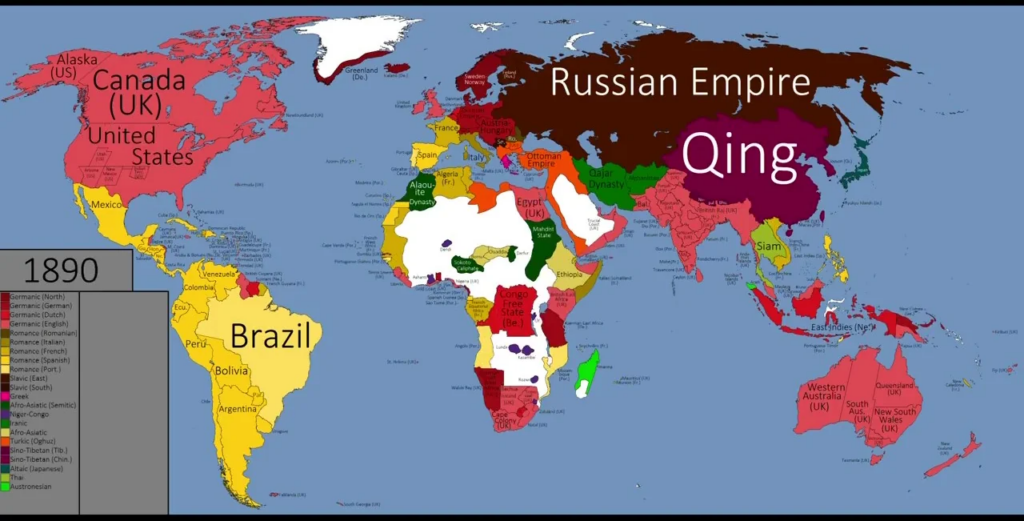1800 AD
- Light bulb, steamboat and cotton gin invented, according to Leela. “Those are all from the nineteenth century!” Note that she’s wrong on two of the three counts; the steamboat and the cotton gin are both from the 18th century, above. (Orginial Timeline or Alternate First)
1810 AD
- October 12 – First Oktoberfest: Bavarian royalty invites the citizens of Munich to join the celebration of the marriage of Crown Prince Ludwig of Bavaria, to Princess Therese of Saxe-Hildburghausen.
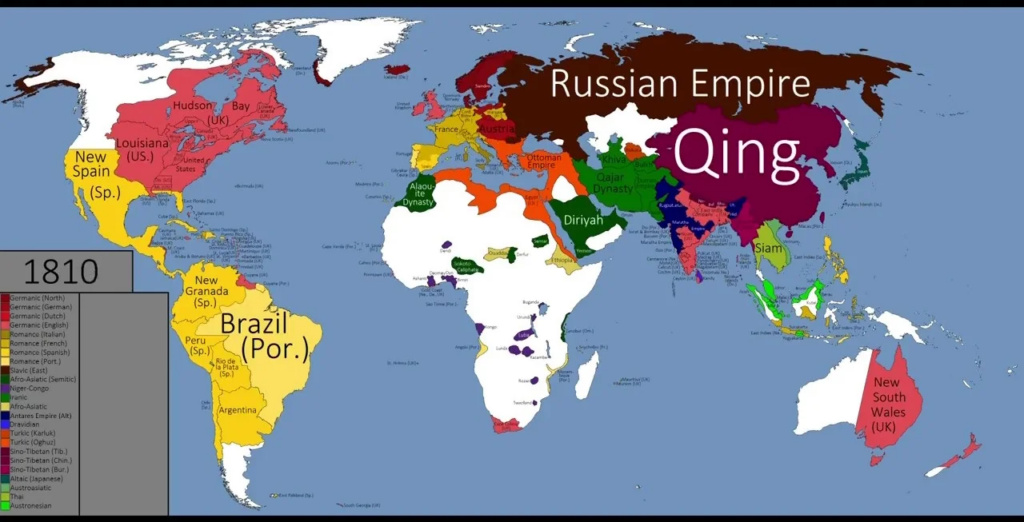
1812 AD
- January 19 – Peninsular War: The French-held fortress of Ciudad Rodrigo is stormed by the Anglo-Portuguese Army, under the Earl of Wellington.
- February 12 – Napoleon authorizes the usage of Mesures usuelles, the basis of the metric system.
- February 24 – Prussia and France sign the Treaty of Paris.
- March 14 – Prussia and Austria sign the Treaty of Paris.
- March 16–April 6 – Siege of Badajoz (Peninsular War): The Anglo-Portuguese Army, under the Earl of Wellington, besieges Badajoz, Spain and forces the surrender of the French garrison.
- March 19 – The Cortes of Cádiz creates the first modern Spanish constitution.
- May 16 – Russian field marshal Mikhail Kutuzov signs the Treaty of Bucharest, ending the Russo-Turkish War (1806–12) and annexing Bessarabia to Imperial Russia.
- June 1 – War of 1812: U.S. President James Madison asks the U.S. Congress to declare war on the United Kingdom.
- June 4 – Following Louisiana‘s admittance as a U.S. state, the territory by that name is renamed the Missouri Territory.
- June 16 – New York State charters the City Bank of New York (later Citibank).
- June 18 – The War of 1812 between the United States, Canada and the United Kingdom begins with US declaration.
- June 24 – Napoleon‘s Grande Armée crosses the Neman River, and invades Russia.
- July 18 – Russia’s Patriotic War – Battle of Klyastitsy: Kulnev defeats Oudinot, but sustains a mortal wound.
- August 5 – War of 1812: Tecumseh‘s Indian force ambushes Thomas Van Horne‘s 200 Americans at Brownstone Creek, causing them to flee and retreat
- August 12 – Peninsular War: The combined English and Portuguese army under the command of Wellington enters Madrid, following the Battle of Salamanca.
- August 15 – War of 1812 – Battle of Fort Dearborn: Potawatomi warriors overrun the United States fort in Illinois Territory.
- August 16 – War of 1812: American General William Hull surrenders Fort Detroit, without a fight, to the British Army.
- August 19 – War of 1812: USS Constitution defeats the British frigate Guerriere, off the coast of Nova Scotia. The British shot is said to have bounced off Constitution‘s sides, earning her the nickname “Old Ironsides”.
- September 7 – Napoleonic Wars – French invasion of Russia – Battle of Borodino: The bloodiest battle of the Napoleonic Wars ends in a tactical victory for Napoleon. There are at least 70,000 casualties, with a minimum of 6,562 dead from the French Grande Armée alone.
- September 14 – French invasion of Russia and Fire of Moscow: Napoleon‘s troops enter Moscow, which is deliberately set on fire by Muscovites, on orders of Fyodor Rostopchin. Later accounts report that France lost 40,000 troops during four days of fire between September 17 and 20, and that 20,000 Russian soldiers were killed in what would be described in 1876 as “the greatest example in history of national self-sacrifice for the destruction of an invader.
- October 9 – War of 1812: American naval forces under Lieutenant Jesse Duncan Elliott capture two British warships, HMS Detroit and HMS Caledonia.
- October 12 – The capital of the Pennsylvania, United States, is permanently moved from Lancaster to Harrisburg.
- October 13 – War of 1812 – Battle of Queenston Heights: As part of the Niagara campaign in Ontario, Canada, United States forces under General Stephen Van Rensselaer are repulsed from invading Canada by British and native troops, led by Sir Isaac Brock (who dies during the battle).
- October 18–20 – Second Battle of Polotsk – Russians attack and defeat a Franco-Bavarian force in Belarus.
- October 19 – Napoleon begins his retreat from Moscow.
- October 23 – Malet coup of 1812: General Claude François de Malet attempts unsuccessfully to overthrow the Napoleonic régime in Paris.
- October 24 – Napoleonic Wars – Battle of Maloyaroslavets: An inconclusive encounter between the French vanguard and a Russian force leads Napoleon to decide to retreat along the same line as his advance, with disastrous results.
- November 3 – Napoleonic Wars – Battle of Vyazma: The rearguard of Napoleon’s retreating army is defeated.
- November 5 – 1812 United States presidential election: James Madison defeats DeWitt Clinton.
- November 10 – 1812 United Kingdom general election: The Tory Party is victorious, under Robert Jenkinson, 2nd Earl of Liverpool.
- November 15–18 – Napoleonic Wars – Battle of Krasnoi: Napoleon’s retreating army is again defeated in a series of skirmishes.
- December 8 – The M6.9–7.5 San Juan Capistrano earthquake affects Alta California with a maximum Mercalli intensity of VII (Very strong) to IX (Violent), killing 40 parishioners at Mission San Juan Capistrano.
- December 14 – The French invasion of Russia comes to an end as the remnants of the Grande Armée are expelled from Russia.
- December 20 – The first volume of Grimms’ Fairy Tales is published in Germany.
- December 29 – War of 1812: USS Constitution defeats the British frigate HMS Java, off the coast of Brazil.
- December 30 – The Convention of Tauroggen is signed.
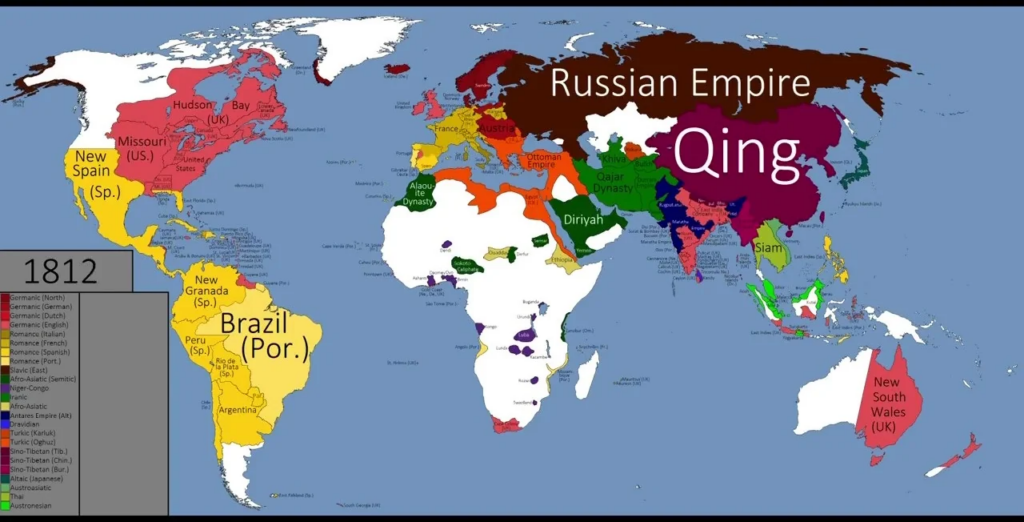
1813 AD
- January 28 – The novel Pride and Prejudice, entered by Fry, Leela, and the Big Brain in 3001 (3ACV07), is first published. (Alternate First)

1818 AD
- Fall of Antares Empire (Alternate First)
1820 AD
- The Golden Age of Muttonchops begins. (Alternate First)
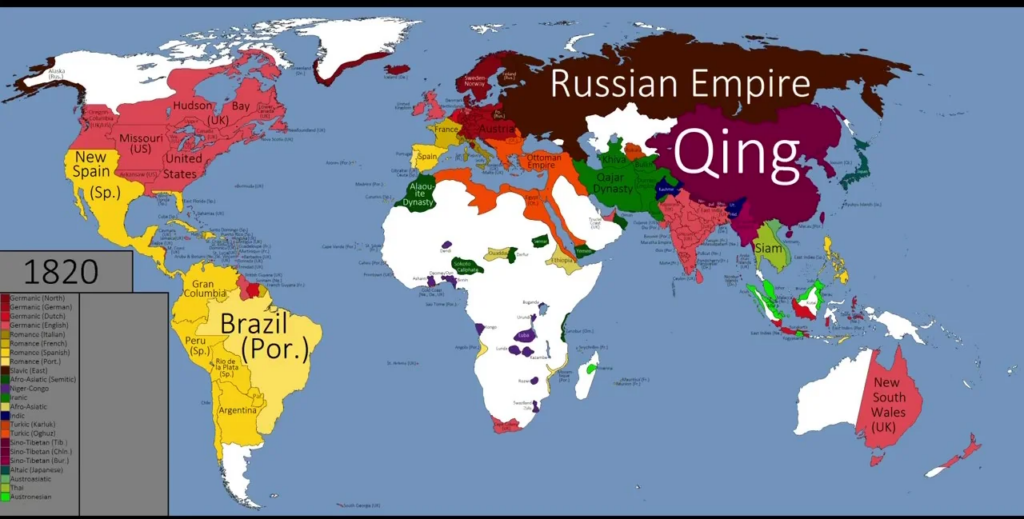
1821 AD
- September 27 – The Army of the Three Guarantees enters Mexico City, and the following day the Declaration of Independence of the Mexican Empire from Spain is proclaimed, following the Mexican War of Independence.
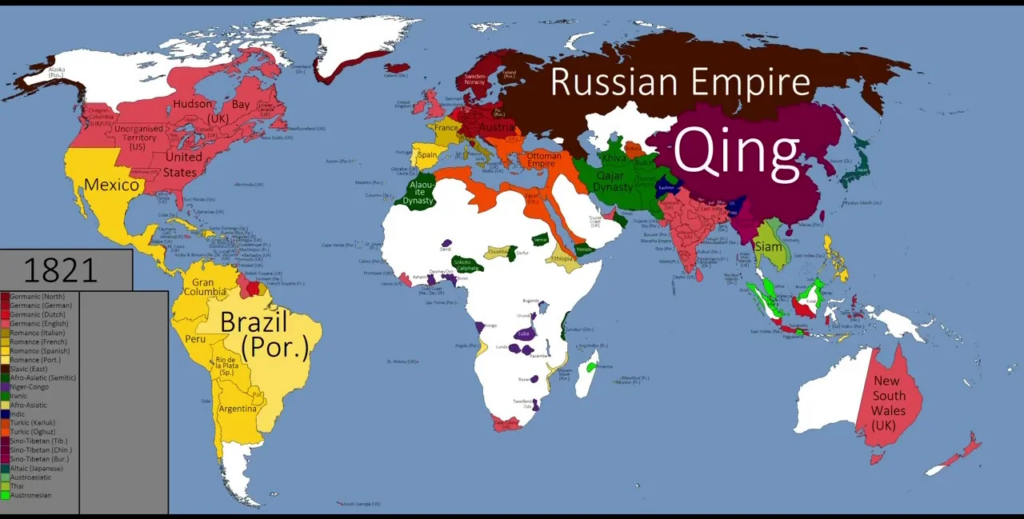
From 1833 AD to 1896 AD
- Dates of Alfred Nobel, who instituted the Nobel Prizes. 3012 Presidential candidate Chris Travers won a Nobel Prize (in an unspecified field and year), which is seen on screen in this episode, showing (as with real Nobel prizes) Alfred Nobel in profile and the years of his birth and death. The death year shown is correct, “MDCCCXCVI”, but the birth year shown is clearly “MOOCCXXI”, a meaningless number in Roman numerals. The correct birth year would be “MDCCCXXXIII”. This is presumed to be an animation error, rather than an indication that Alfred Nobel’s birth year is something different in the Futurama universe.
1846 AD
Bender is in the town of Salem, Massachusetts and assembles himself together with a magnet and ends up singing folk songs which pleases the townspeople who introduce a fembot named Samantha (Alternate First)
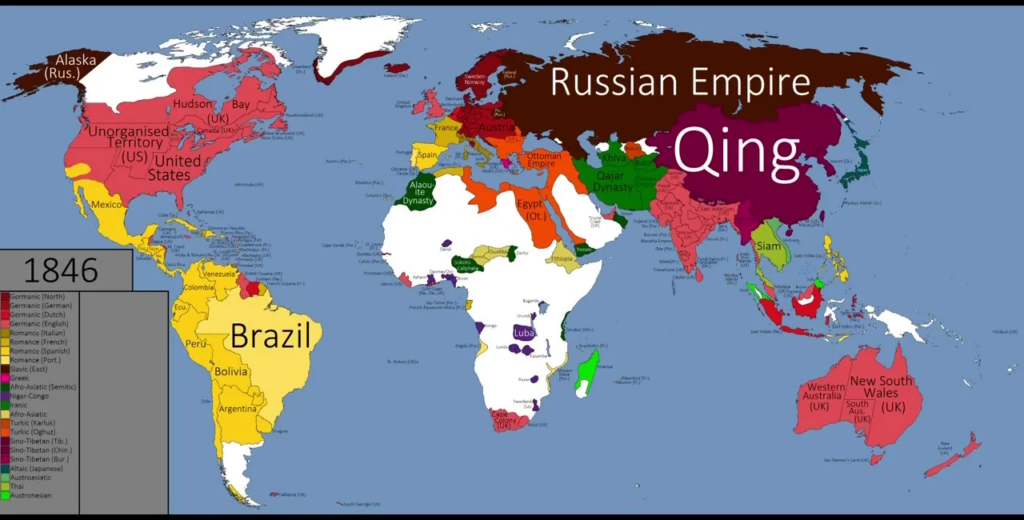
1861 AD
- March 4 – Abraham Lincoln is sworn in as the 16th president of the United States.
- April 12 – The American Civil War begins with the bombardment ofFort Sumter, South Carolina.
- The World War: European Intervention in the American Civil War (Alternate First)
- May 13 – Great Comet
- October 13 – Battle of Santa Rosa Island
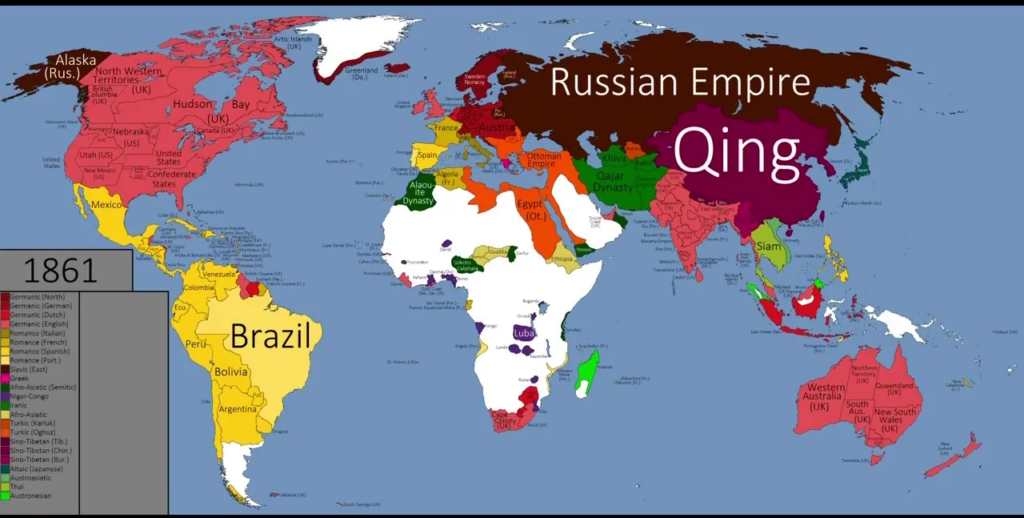
1872 AD
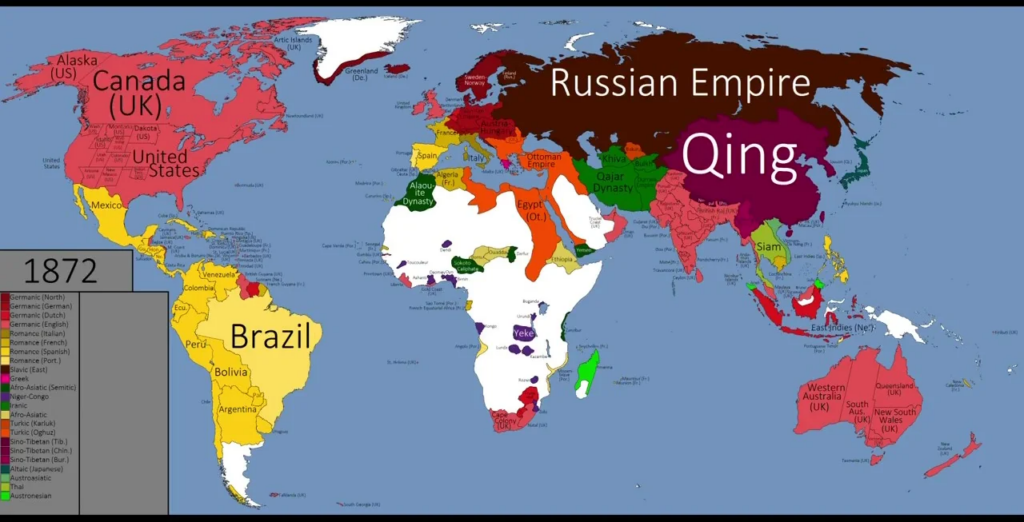
1874 AD
- Light bulb invented. Date is from historical record.
1887 AD
- The Golden Age of Muttonchops ends. (Alternate First)
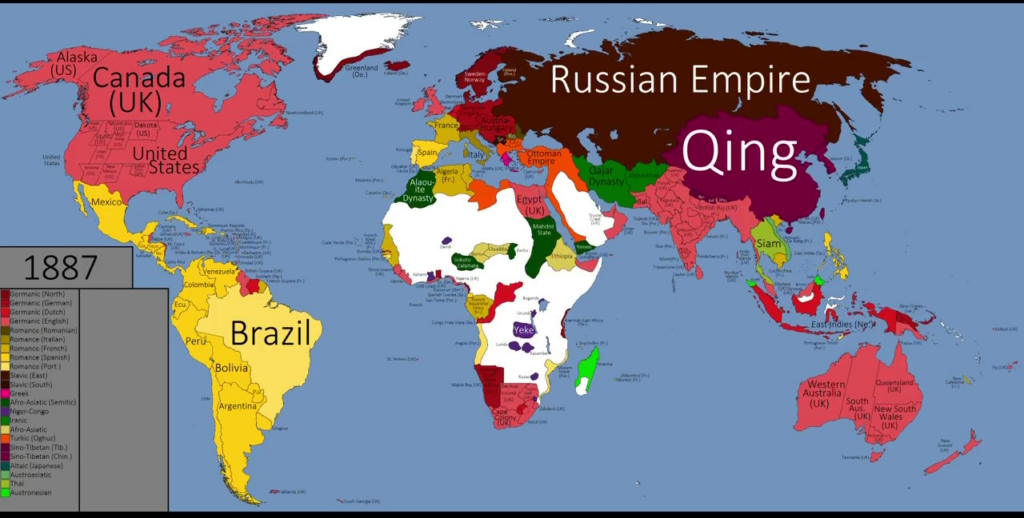
1890 AD
- July 31 – October 18 – Around the World in Eighty Days (Alternate Fisrt)
- July 31 – London
- August 1 – Paris
- August 9 – Istanbul
- August 23 – Arga
- September 9 – Lanzhou Village
- September 29 – San Francisco
- October 4 – New Mexico Desert
- October 10 – New York
- October 11 – Atlantic Ocean
- October 18 – From Atlantic Ocean to London
